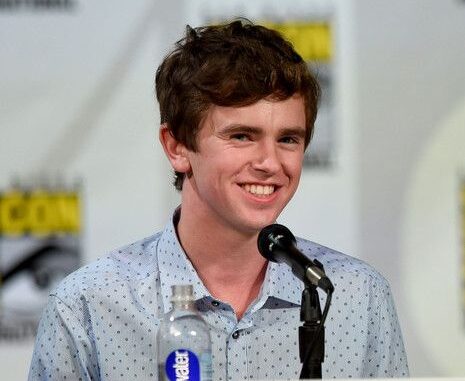
After seven heartfelt seasons, ABC announced that The Good Doctor would end with Season 7. The news hit fans hard, especially those who had followed Dr. Shaun Murphy’s journey since day one. But while cancelations are often seen as a result of falling ratings or creative burnout, The Good Doctor’s end is far more complicated than a simple numbers game.
In truth, this was not just the end of a show—it was the end of a carefully built narrative, a changing television landscape, and the evolution of what audiences expect from medical dramas. Here’s a closer look at the real reasons behind The Good Doctor’s cancelation—and why it may actually be a bittersweet victory.
1. Creative Closure Was Always Part of the Plan
From the beginning, The Good Doctor was never meant to go on forever. Series creator David Shore—also the mind behind House—has always been clear about the importance of a story having a true beginning, middle, and end.
By Season 6, it was evident that Shaun’s character arc had matured significantly. He had evolved from a struggling surgical resident into a capable surgeon, a husband, and even a father. Many of the show’s long-running emotional threads—his relationship with Dr. Glassman, his battle for respect, his personal growth—had reached a natural resolution.
2. Changing TV Economics Played a Role
Behind the scenes, television is no longer the industry it once was. Traditional network shows like The Good Doctor face growing competition from streaming platforms that dominate the awards circuit and viewer attention. Producing a scripted drama with high production value, a large ensemble cast, and location shoots isn’t cheap.
ABC, like many networks, has had to make hard calls to cut costs while restructuring its content strategy. Even well-loved series are not immune when budget becomes a central concern. Additionally, the post-pandemic television economy has made studios more cautious. Shows now face shorter renewal cycles, reduced episode orders, and increased pressure to justify every dollar spent. In this climate, even a successful series must eventually face the financial realities.
3. Ratings Decline, But Not a Collapse
Let’s be honest: ratings did decline. But that’s true of nearly every network drama in the streaming age. While The Good Doctor no longer pulled in the blockbuster numbers of its first few seasons, it maintained a strong and loyal audience—especially among older viewers and international fans.
Streaming also kept the show relevant long after its episodes aired live. In fact, many new fans discovered Shaun Murphy through platforms like Hulu and Disney+, helping the show maintain cultural visibility even if its Nielsen numbers dipped.
4. Freddie Highmore’s Journey Reached Its End
One of the biggest behind-the-scenes factors may have been Freddie Highmore himself. Since the beginning, Highmore has been the heart of the show—not only as its lead actor but also as a writer, director, and producer. His commitment to the role of Dr. Shaun Murphy has been widely praised for its depth, nuance, and sensitivity.
However, after seven seasons, it’s understandable that Highmore might want to move on. Playing such an emotionally intense character for nearly a decade takes a toll. And creatively, it’s clear he has more stories to tell—perhaps in different roles or even behind the camera.
5. The Rise of Spinoffs Like ‘The Good Lawyer’
Another sign that The Good Doctor’s cancellation wasn’t a failure is ABC’s investment in a shared universe. The introduction of The Good Lawyer, starring Kennedy McMann, is a clear indication that the network still believes in the core values of the franchise.
Just as Grey’s Anatomy expanded with Station 19, this new legal drama will continue exploring themes of neurodiversity, perseverance, and justice—this time in the courtroom instead of the OR. By ending The Good Doctor on a high note, the creators have paved the way for the next generation of storytelling within the same universe.
6. It’s Hard to Say Goodbye to Good People
Perhaps what makes The Good Doctor’s ending so difficult is the emotional connection fans have developed with its characters. From the tragic loss of Dr. Melendez, to the departure of Claire Browne, to the evolution of Morgan, Park, Lim, and Asher—this was a show where character mattered. The cancelation also marks the end of one of the few network shows that centered an autistic character as its lead, portrayed with empathy and integrity. In a landscape still struggling with representation, The Good Doctor was a quiet revolution.
Letting go feels like losing a friend—but it’s also a testament to how deeply the show mattered. The Good Doctor didn’t get canceled because it failed. It ended because it succeeded—creatively, emotionally, and culturally. It told the story it came to tell. It gave us a character we won’t soon forget. And it did so with honesty, heart, and hope. In an industry where shows often overstay their welcome or vanish without closure, The Good Doctor did something rare: it gave its audience the ending they deserved.
